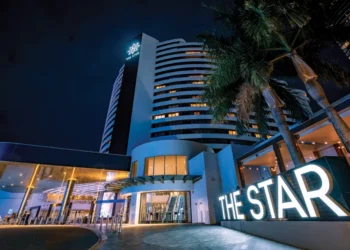The tight regulations set to govern Japan’s IR industry threaten to cloud the ability of operators to secure the funding they will need for IR development, according to financial industry leaders.
The issue of financing proved a key topic of discussion on the opening day of this year’s Japan Gaming Congress at Conrad Tokyo, with multiple stakeholders expressing concern over the industry’s ability to flourish under the regulations currently outlined under the national government’s IR Development and Promotion Ordinance.
Among the rules and regulations already announced is a limit on the casino floor space to a maximum 3% of the IR facility, minimum hotel space of 100,000 square meters, a JPY6,000 (US$56) entry fee for locals and a tax rate of 30%. The government has also promised that licenses will be have to be renewed every three years and land leases every seven.
“Due to the huge disconnect between what the Japanese government will write into legislation and what the Japan megabanks are saying they require in order to underwrite a project financing loan, there will be difficulty in obtaining traditional integrated resort mortgage loan financing from local lenders,” said David Bonnet, Managing Partner at Delta State Holdings Ltd.
“That being said it creates a huge opportunity for global investment banks to raise senior bonds on a global level.
“There are significant opportunities for a number of investment groups but the structure needs to be different from what we are discussing today.”
Kentaro Maruta, Partner at KPMG Tokyo, said the national government will almost certainly require a commitment letter from a financial institution to accompany any operator bid. However, with IR financing usually involving short-term loans at high interest rates, the “lack of clarity” over their ability to repay loans quickly remains a sticking point.
“There areso many challenges that impact the profitability of an IR in Japan – construction is expensive, they need substantial HR resources and 30% tax is very high, so this can also impact investment,” Maruta said.
John Corrigan, Executive Director of Lodging and Gaming at Sumitomo Mitsui Banking Corporation, said he expects operators to assume a 50-50 equity versus debt ratio, with total investment in a metropolitan IR expected to be as high as US$10 billion.
However, Bonnet noted that operators were well-versed in dealing with such problems.
“If there is any concern I would say operators will overcome it,” he said.
“The basic concern for lenders is when are they going to get their money back? At the moment, with the discretionary type of approvals (for new IR and land licenses), there is not a lot of clarity there so of course the banks see risk. It’s a little bit unusual in this industry to see the lenders acting so risk-averse.
“But it will be overcome. This is a high return business so if the operators can’t secure loans they’ll get equity. If they say to someone ‘We’ll give you equity in a monopoly license in Japan’ they’ll quickly be signing up.”



































